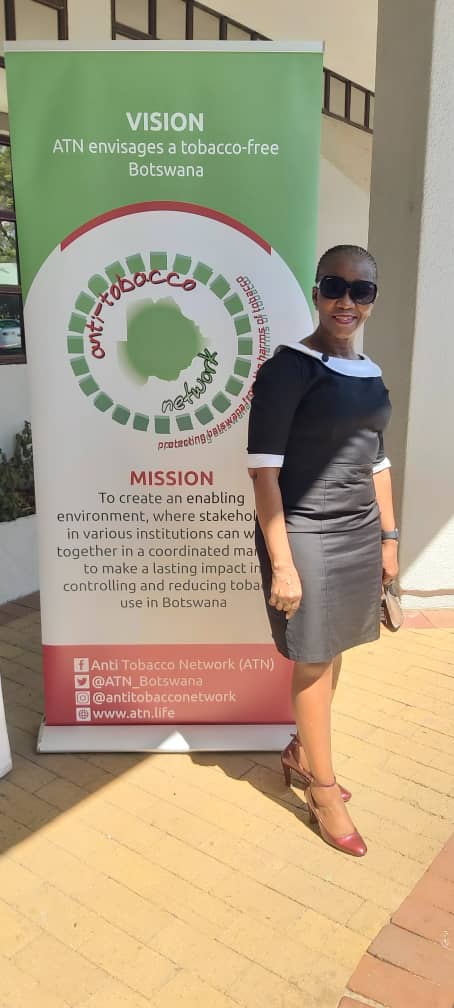WHO Recognises Professor Mbongwe for her Anti-tobacco Accomplishments
 University of Botswana Associate Professor in the Department of Environmental Health, Professor Bontle Mbongwe, is among six African Region recipients of the World No Tobacco Day 2021 awards announced on May 24, ahead of celebrations held annually on May 31.
University of Botswana Associate Professor in the Department of Environmental Health, Professor Bontle Mbongwe, is among six African Region recipients of the World No Tobacco Day 2021 awards announced on May 24, ahead of celebrations held annually on May 31.
Every year, World Health Organisation (WHO) recognises individuals or organisations in each of the six WHO Regions for their accomplishments in the area of tobacco control. The recognition takes the form of WHO Director-General Special Recognition Award and World No Tobacco Day Awards.
Apart from her work at the University of Botswana, Professor Mbongwe is also founder of Botswana’s Anti-Tobacco Network (ATN), which she established as part of her community service project after she left government to join academia in 2004. ATN is a Non Governmental organisation with a vision to have a tobacco-free Botswana. Since 2011, the University of Botswana has been hosting and providing support to the Network.
Following its establishment, ATN has been playing a critical advocacy role against the use of tobacco and its products as well as contributing immensely to formulation of anti-tobacco policies and guidelines in the country. For instance, when COVID-19 struck, Professor Mbongwe says in line with WHO’s anti-tobacco stance during the pandemic, ATN advocated for a ban on the sale of tobacco products in Botswana which government swiftly implemented. “We recognize the devastating impacts of tobacco on human health, the environment and the economy,” says ATN on its Facebook page where it launches anti-tobacco campaigns and advocacy for control measures on the sale of tobacco products.
 ATN went a step further to make sure government provided funding for anti-tobacco campaign messages to lend support and help those with addiction but struggling to quit to appreciate the value of taking action.
ATN went a step further to make sure government provided funding for anti-tobacco campaign messages to lend support and help those with addiction but struggling to quit to appreciate the value of taking action.
As a buildup towards this year’s World No Tobacco Day, WHO launched a year-long campaign under the theme “Commit to Quit”. The campaign is geared towards creating healthier environments that are conducive to quitting tobacco by advocating for strong tobacco cessation policies; increasing access to cessation services; raising awareness of tobacco industry tactics, and empowering tobacco users to make successful quit attempts through “quit & win” initiatives.
Consequently, Professor Mbongwe says ATN recently paid the Minister of Health and Wellness a courtesy call part of which was to advocate for the introduction of “Quitting Places” in hospitals to cater for sick in-patient smokers who are kin on quitting smoking.
Professor Mbongwe reckons that it is not enough just to tell someone to quit hence the need for services and a conducive environment for smokers to help them break the habit.
According to WHO Smoking kills eight million people a year but if users need more motivation to kick the habit, the COVID-19 pandemic provides the right incentive and it was against this background that Professor Mbongwe says ATN advocated for the recent ban on the sale of tobacco products in Botswana.
Meanwhile, the annual World No Tobacco Day is celebrated as means of informing the public on the dangers of using tobacco, the business practices of tobacco companies, what WHO is doing to fight the tobacco epidemic, and what people around the world can do to claim their right to health and healthy living and to protect future generations.
The day came about in 1987 after WHO Member States resolve to draw global attention to the tobacco epidemic and the preventable death and disease it causes. This year’s campaign will support at least 100 million people as they try to give up tobacco through communities of quitters.